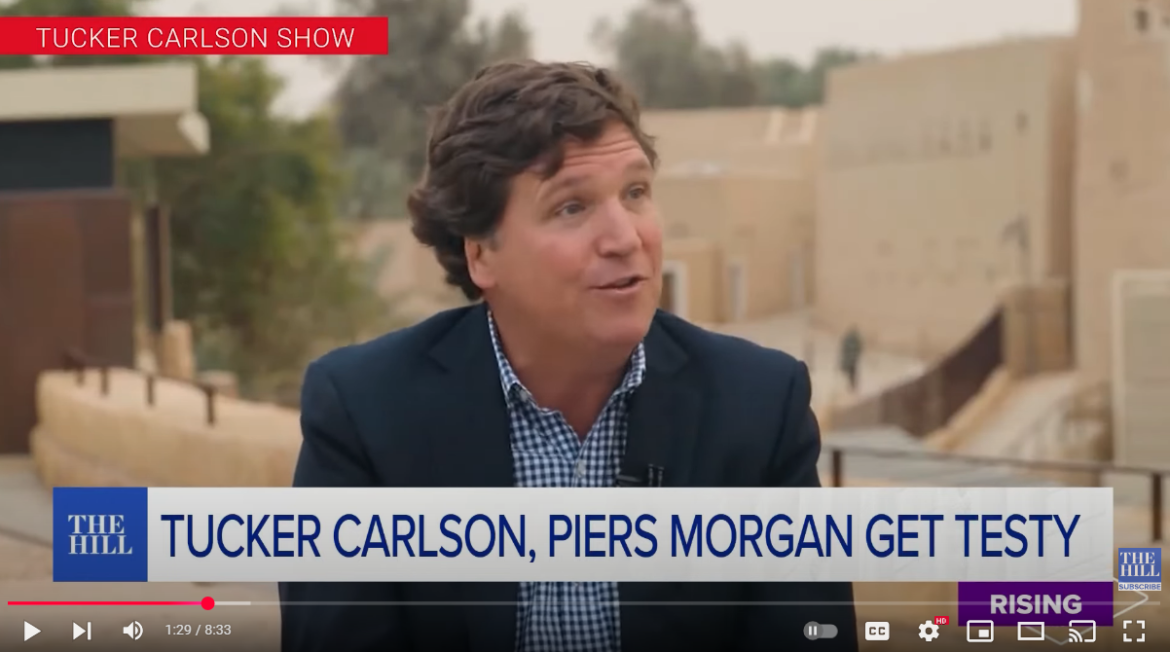Ukrainian President Volodymyr Zelenskyy publicly criticizes American conservative commentator Tucker Carlson, accusing him of spreading Kremlin propaganda and misleading the public about Ukraine’s war with Russia. During an interview on Piers Morgan Uncensored, Zelenskyy calls out Carlson for what he describes as parroting Russian narratives, stating, “He needs to more deeply understand what’s happening in Ukraine and should stop working for Putin.”
The remarks come in response to recent statements made by Carlson, who has questioned Ukraine’s democratic status and suggested that Russia has a legitimate right to control Crimea. In a separate interview with Piers Morgan days earlier, Carlson said, “Ukraine is not a democracy,” and implied that Russia’s claims to Crimea, which it annexed in 2014, were justified. Zelenskyy counters these claims, arguing that Carlson is spreading misinformation and downplaying Russia’s aggression.
Carlson, a former Fox News host, has long been a vocal critic of U.S. involvement in Ukraine and has repeatedly expressed skepticism toward Western support for Zelenskyy’s government. He recently conducted a high-profile interview with Russian President Vladimir Putin, a move that drew significant backlash from Western officials and media watchdogs. During the interview, Carlson allowed Putin to present his justification for the invasion of Ukraine without significant pushback, further fueling accusations that he is aligned with Russian interests.
Zelenskyy’s strong condemnation reflects growing frustration in Kyiv over the influence of Western media figures who amplify Russian perspectives. His administration continues to emphasize that Ukraine is fighting for its sovereignty and democracy against an unprovoked invasion, urging the global community to stand firmly against Russian aggression.
As the war continues, tensions between Ukraine and figures like Carlson highlight the broader information battle being waged alongside the military conflict. The Ukrainian government remains committed to countering narratives that it believes undermine international support and distort the reality of the war.



